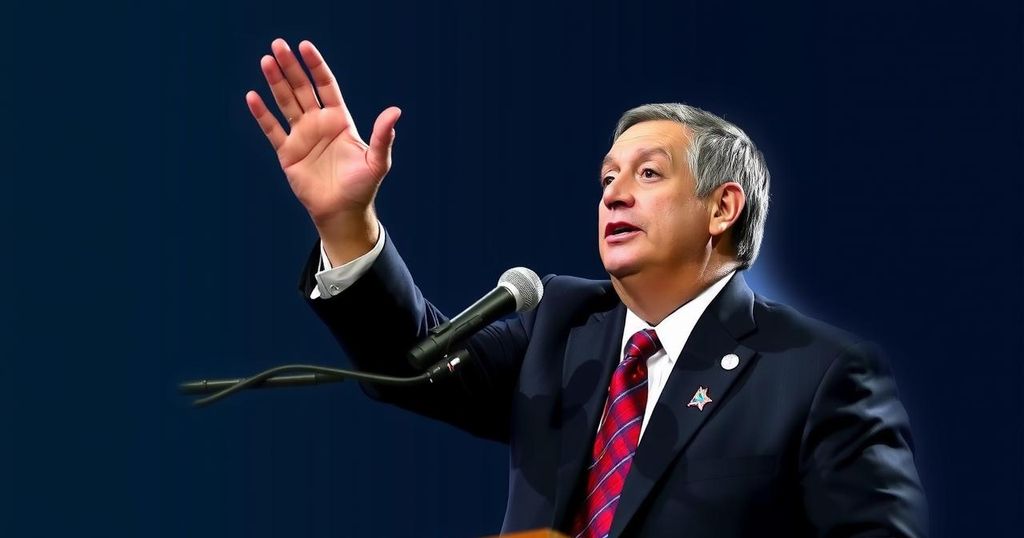World news
ALVARO DELGADO, AP AUSTRALIAN ASSOCIATED PRESS, ARGENTINA, ASIA, BRAZIL, BRITAIN, BROAD FRONT, COALITION GOVERNMENT, COLORADO PARTY, DELGADO, DEMOCRACY, ELECTIONS, FRONT, JAPAN, LUIS LACALLE POU, MEXICO, MONTEVIDEO, NATIONAL PARTY, NORTH AMERICA, OR, ORSI, PHILIPPINES, POLITICS, SOUTH AMERICA, TRADE RELATIONS, URUGUAY, US
Daniel O'Connor
0 Comments
Yamandu Orsi Wins Presidency in Uruguay’s Historic Election
Centre-left candidate Yamandu Orsi has won the presidency of Uruguay with 49.77% of the vote against conservative Alvaro Delgado. Orsi’s win signals a moderate approach to addressing pressing issues such as inflation and inequality. The election illustrates a global trend of incumbent parties losing voter support, reflecting wider socio-economic concerns across nations.
In a closely contested second-round election, centre-left opposition candidate Yamandu Orsi has emerged victorious in Uruguay’s presidential race. With 97 percent of votes counted, Orsi claimed 49.77 percent, while his conservative opponent, Alvaro Delgado, garnered 45.94 percent. Addressing his supporters in Montevideo, Orsi expressed optimism for the future, stating, “The horizon is brightening.” Both Delgado and outgoing National Party President Luis Lacalle Pou quickly conceded and congratulated Orsi, indicating a smooth transition ahead. This election represented a broader trend across the globe as many incumbent parties lost ground to opposition candidates amid growing concerns over inflation and economic challenges. Orsi, who pledged a moderate policy approach, aims to address the common issues of high living costs and inequality as he prepares to lead the nation.
The recent presidential election in Uruguay reflects a significant political shift in a country known for its relative political stability and moderate electoral landscape. With a population of 3.4 million, Uruguay stands out for its progressive social policies, including the legalization of marijuana, and has historically demonstrated a less divisive political climate compared to its regional neighbors. Economic factors, particularly inflation, have impacted voter sentiment, paralleling a global trend of incumbent parties experiencing declining voter support in the face of economic hardships.
The victory of Yamandu Orsi marks a pivotal moment in Uruguayan politics, showcasing the electorate’s demand for change amidst economic challenges. Orsi’s centre-left policies present a continuation of Uruguay’s tradition of moderation while addressing pressing societal issues. With his leadership, there is potential for renewed focus on freedom, equality, and social welfare in the nation, following a global pattern of shifting political dynamics despite significant social and economic trials.
Original Source: www.areanews.com.au




Post Comment